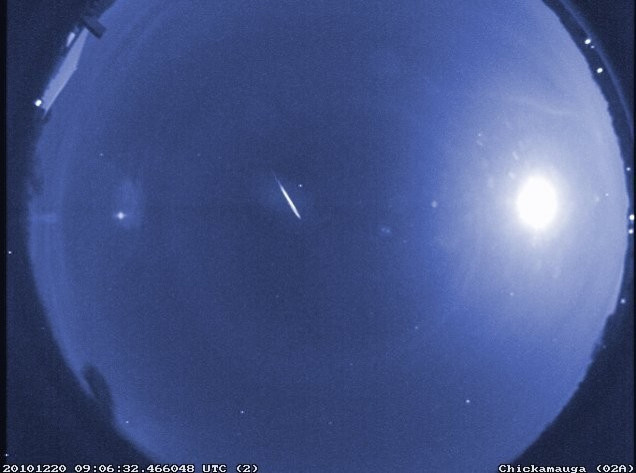Quadrantid Meteor Shower: Watch the Live Feed Online on Jan. 3-4 [VIDEO]

The first Quadrantid meteor shower of the year will peak in the early hours on Wednesday. Observers can expect to see between 60 and 200 meteors an hour.
The waxing gibbous moon will set around 3 a.m. local time, leaving about two hours of excellent meteor observing before dawn, NASA said in a statement.
The Quadrantid shower is considered one of the best of the year, National Geographic reports, with average rates of one shooting star a minute visible across a dark night sky. The Quadrantids can be seen most clearly in the Northern Hemisphere in the middle of winter and will generally not be noticeable in the Southern Hemisphere.
Observers should even be able to see the stars from the suburbs and can expect to see as many as 40 Quadrantids per hour on the morning of January 4 and, if you are fortunate, that rate could even be higher, said Jim Todd, planetarium manager at the Oregon Museum of Science and Industry.
The meteors shoot across the sky very quickly and viewers should be patient in catching a glimpse of them. The peak of the show only lasts a few hours and star watchers should expect to wait for the show at 3 a.m. EST.
The meteors come from an asteroid, known as 2003 EH1.
Dynamical studies suggest that this body could very well be a piece of a comet which broke apart several centuries ago, and that the meteors you will see before dawn on Jan. 4 are the small debris from this fragmentation. After hundreds of years orbiting the sun, they will enter our atmosphere at 90,000 mph, burning up 50 miles above Earth's surface -- a fiery end to a long journey, NASA explained in a statement.
The Quadrantid shower gets its name from the constellation from which the meteors appear to radiate, Quadrans Muralis. The constellation has been removed from star charts since 1922 due to overcrowding, but astronomers have maintained the name of the meteor showers.
The Marashall Space Flight Center has set up a live feed of the sky over its station at Hunstville, Ala, which can be seen late tonight on the video below.
Watch Live Feed of Quadrantid Meteor Shower:
© Copyright IBTimes 2024. All rights reserved.





















